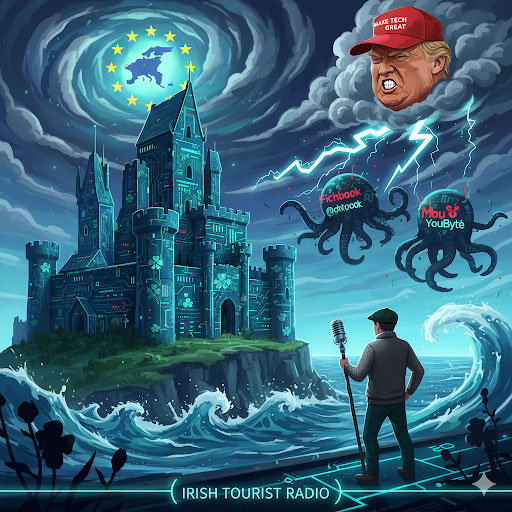While Silicon Valley titans once believed they could operate beyond the reach of traditional governance, building digital empires that sprawled across borders like some techno-feudalist dream the European Union’s Digital Services Act has arrived with the force of a regulatory reckoning, transforming the wild west of online spaces into something resembling, well, civilization.
Luxembourg’s adoption of the DSA legislation on April 4, 2025, marked the latest domino to fall in Europe’s methodical march toward digital sovereignty. The regulation, which supersedes Germany’s NetzDG and France’s Loi Avia, represents something more ambitious than patchwork national laws: a unified European front against the chaos of unregulated algorithms and unchecked content moderation.
It’s the kind of sweeping reform that makes American tech executives wake up in cold sweats or at least check their European revenue projections with renewed anxiety.
The classification system reads like a hierarchy of digital accountability. Platforms with over 45 million monthly EU users, your Facebooks, your YouTubes, your TikToks, find themselves designated as Very Large Online Platforms, a bureaucratic title that carries the weight of enhanced obligations. These platforms must also offer non-profiling recommendation systems, allowing users to escape the algorithmic echo chambers that have defined social media for the past decade.
These digital behemoths must now submit to transparency reports starting July 2025, reveal their algorithmic secrets, and somehow balance the tightrope between removing illegal content and preserving that sacred cow of democratic society: freedom of expression.
Tech giants must now expose their algorithmic secrets while walking the impossible line between censorship and free speech.
The protection of minors emerged as a particular obsession, with guidelines published on July 14, 2025, establishing what the Commission calls “significant benchmarks for compliance assessments.”
Translation: platforms accessible to children can no longer treat young users as miniature adults with credit cards. The measures align with broader European and British regulatory trends a transatlantic consensus that maybe, just maybe, we shouldn’t let algorithms raise our children.
Then there’s the hate speech provision, integrated into the DSA on January 20, 2025, requiring platforms to review flagged content within 24 hours for at least two-thirds of cases.
The Code of Conduct reads like a peace treaty between Silicon Valley and Brussels, with major platforms signing on as if they had a choice. They didn’t, really, not if they wanted to keep operating in a market of 450 million consumers. The threat of penalties reaching up to 6% of global annual turnover tends to focus the mind wonderfully, transforming even the most libertarian tech executives into compliance enthusiasts.
The timing feels almost cinematic. As the DSA tightens its grip, whispers of American retaliation grow louder, with threats of tariffs and tech warfare floating across the Atlantic like storm clouds.
Yet Europe persists, methodical and unmoved, building its digital fortress one regulation at a time.
What emerges isn’t just a legal framework but a philosophical statement: that digital spaces aren’t exempt from democratic oversight, that algorithms aren’t neutral arbiters, and that tech companies despite their protestations about innovation and disruption must answer to something beyond quarterly earnings.
The DSA represents Europe’s bet that regulation can tame the internet without breaking it, a wager that will define digital governance for years to come.








